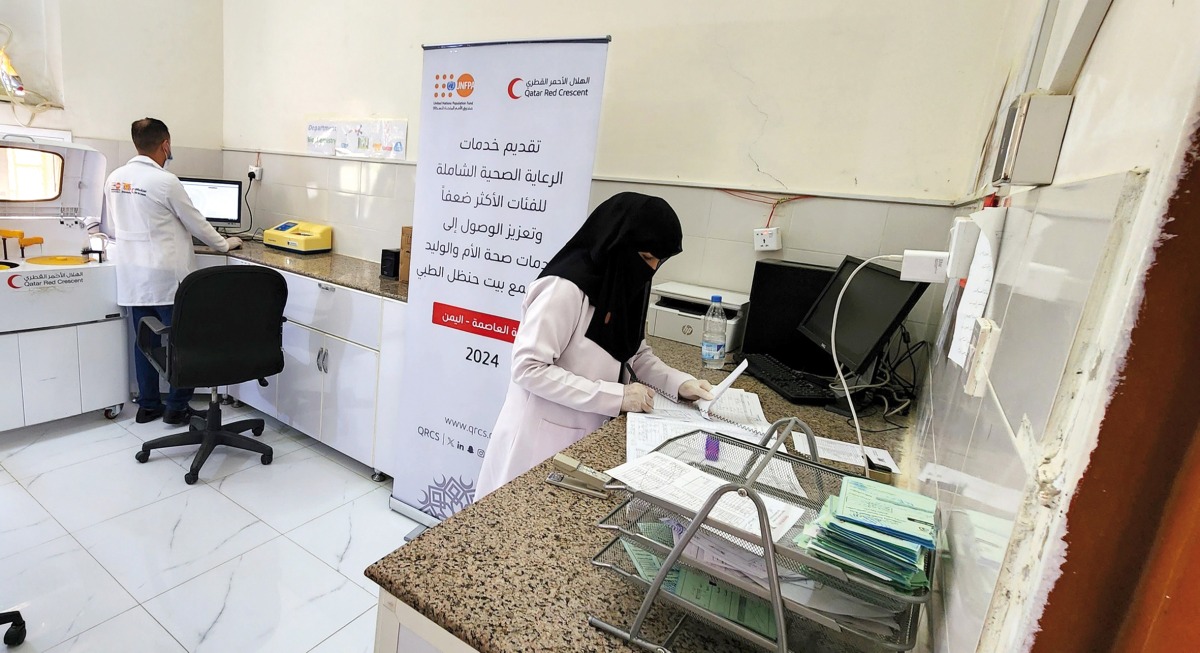In Yemen, the representation office of Qatar Red Crescent Society (QRCS) has initiated a new health project to offer comprehensive health care services to vulnerable groups and improve access to maternal and neonatal health services in hospitals in Al Hudaydah, Taiz, and Sana’a. This $926,700 project is a joint effort between QRCS and the United Nations Population Fund (UNFPA) and aims to address health issues in isolated areas with limited medical resources, increasing numbers of internally displaced people (IDPs), and restricted access to reproductive health services for girls and women in five districts.
To enhance their capacity, six medical facilities will receive support in the form of medical supplies, operational expenses, and staff remunerations for a year. Since its inception, the project has provided over 38,741 free medical services including consultations, examinations, x-rays, medications, and obstetric care/emergency services. This initiative is part of a strategic partnership between QRCS and UNFPA, focused on improving reproductive health services in Yemen and building resilience and self-reliance within the health system and local communities amidst one of the most complex humanitarian crises according to the United Nations.
The project follows a dual approach, combining urgent humanitarian aid with long-term development planning. By prioritizing both immediate relief efforts and sustainable development initiatives, the project seeks to create lasting impacts on the health sector in Yemen and promote self-sufficiency among local communities. This approach not only addresses the immediate health needs of vulnerable populations but also works towards building a stronger, more resilient health system that can withstand future challenges.
Through this partnership, QRCS and UNFPA aim to strengthen the health system in Yemen and improve access to essential reproductive health services for women and girls. By working together to provide medical supplies, operational support, and staff assistance, the project hopes to make a meaningful impact on the lives of those in need in the targeted districts. This collaborative effort underscores the importance of partnership and coordination in addressing complex humanitarian crises and demonstrates the impact that strategic collaborations can have on improving health outcomes in challenging environments.
The success of this initiative can be measured by the significant number of medical services provided to the community, which highlights the positive impact of the project on the health and well-being of vulnerable populations. By focusing on enhancing access to essential health services, particularly for women and girls, the project aims to address critical health issues in Yemen and improve the overall health status of the population. This comprehensive approach to healthcare delivery underscores the commitment of QRCS and UNFPA to improving health outcomes and building a more resilient health system in Yemen.
In conclusion, the health project launched by QRCS in partnership with UNFPA in Yemen represents a significant step towards improving access to essential health services for vulnerable populations, particularly women and girls. By combining urgent humanitarian aid with long-term development planning, the project aims to create sustainable impacts on the health system and promote self-reliance within local communities. Through their collaborative efforts, QRCS and UNFPA are working towards addressing the complex health challenges faced by the Yemeni population and building a stronger, more resilient health system for the future.











